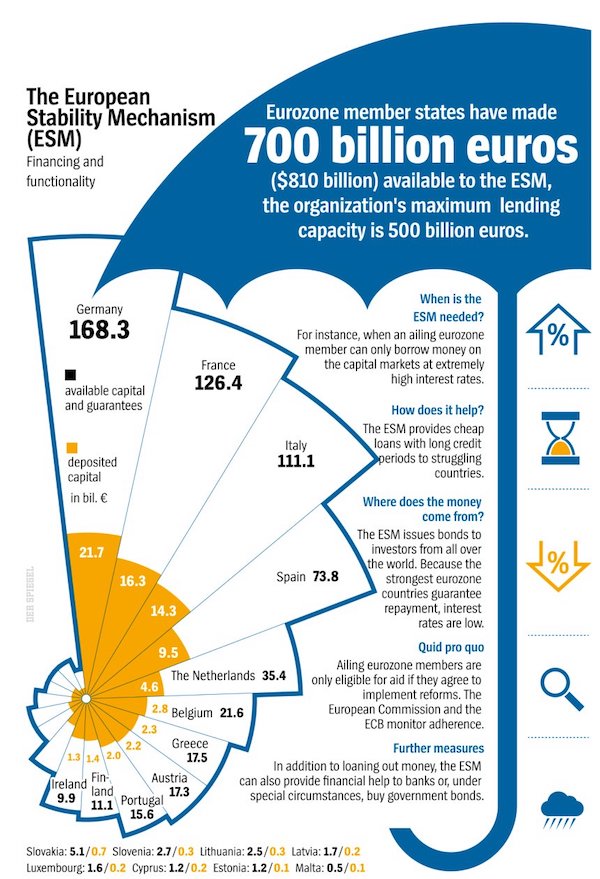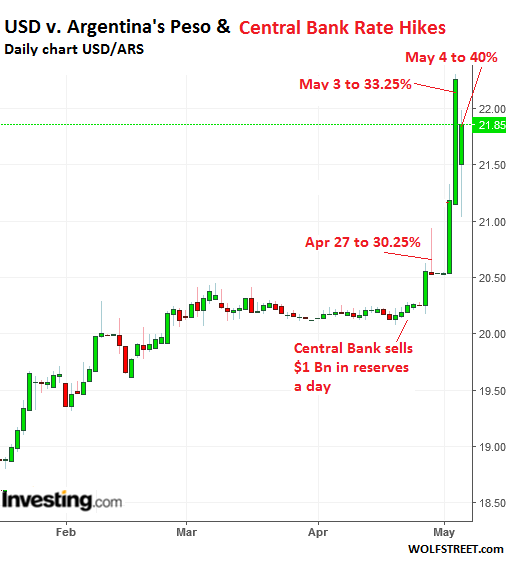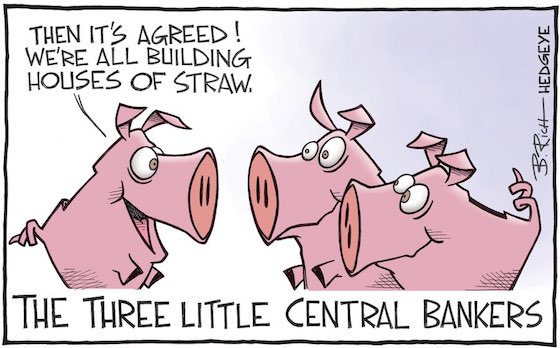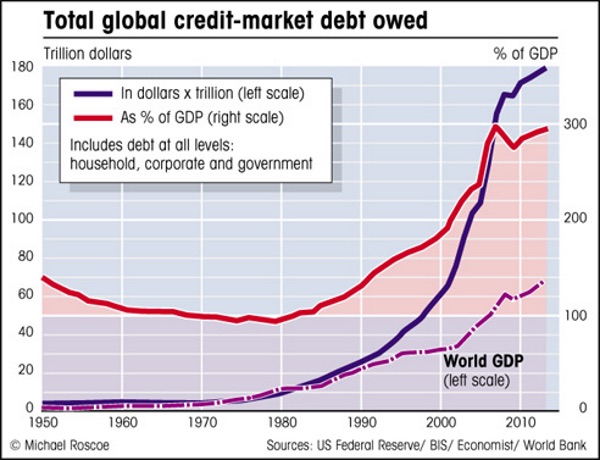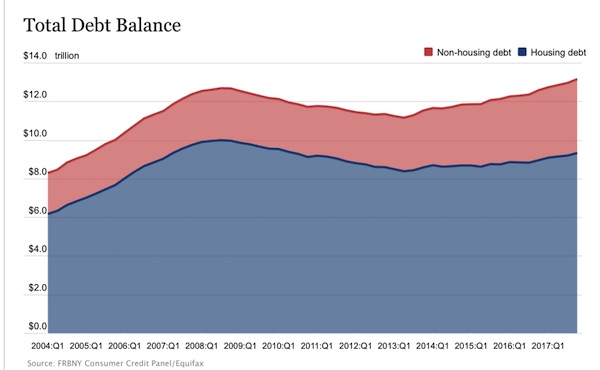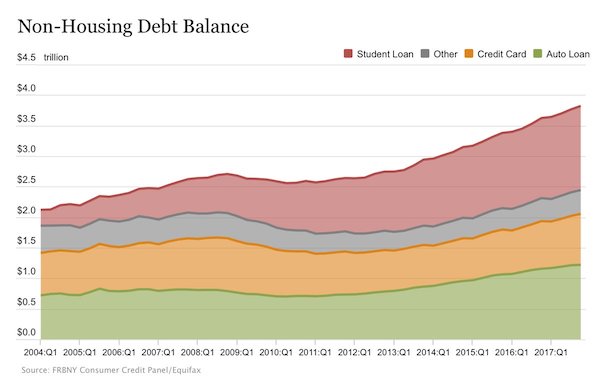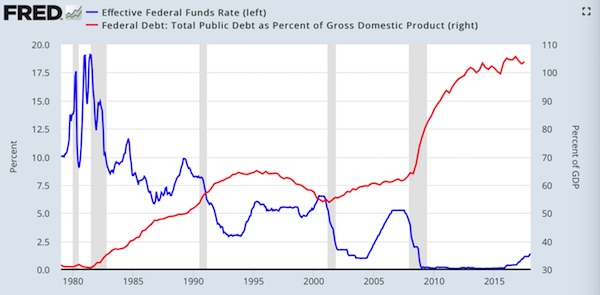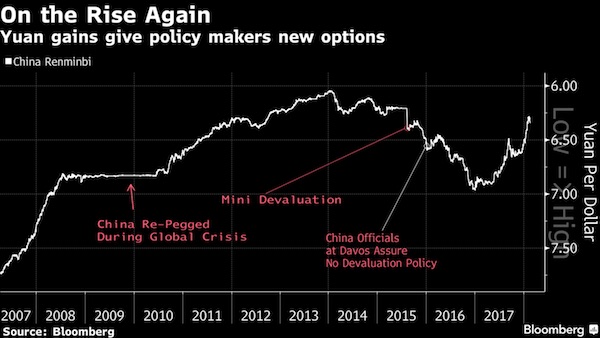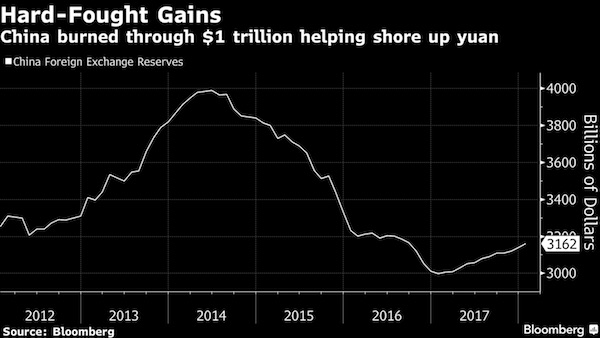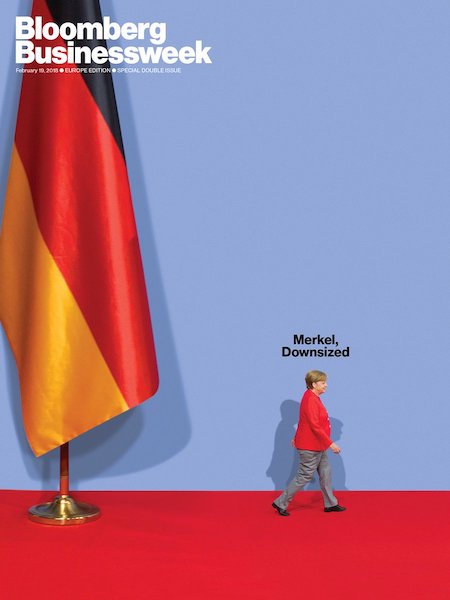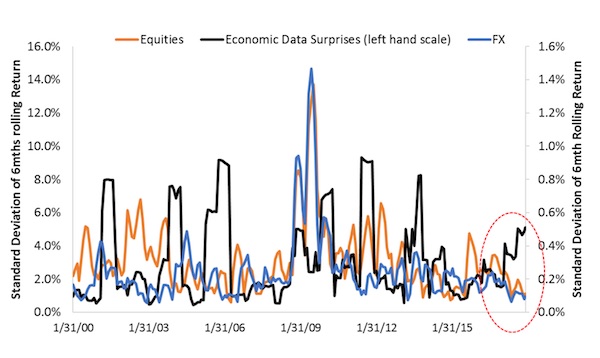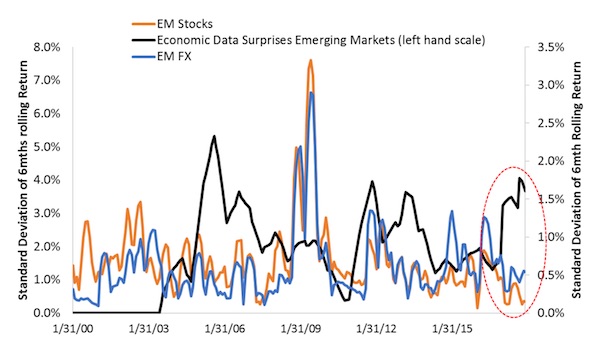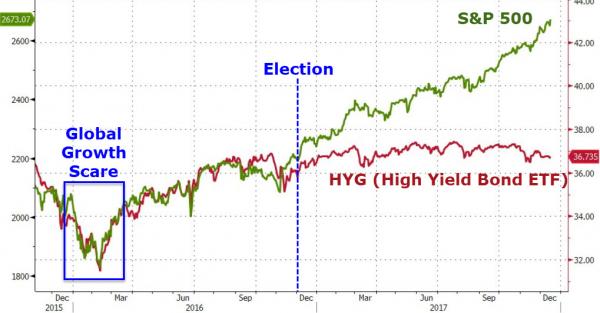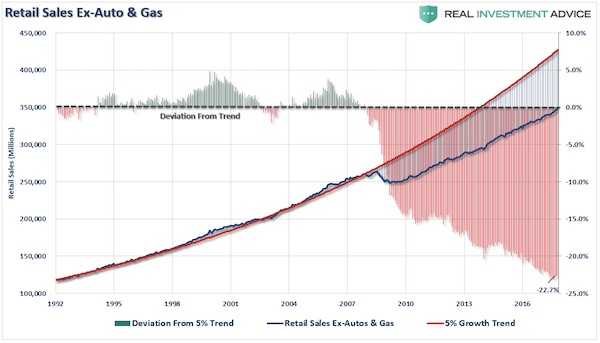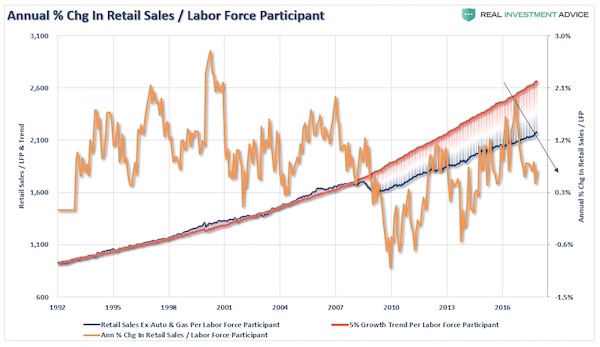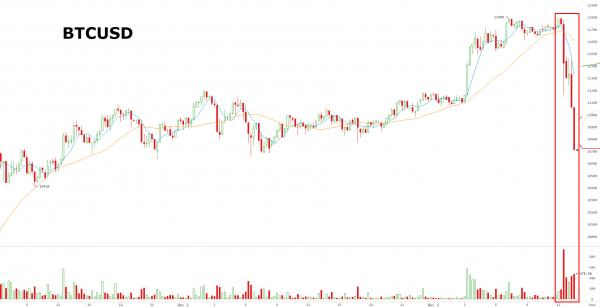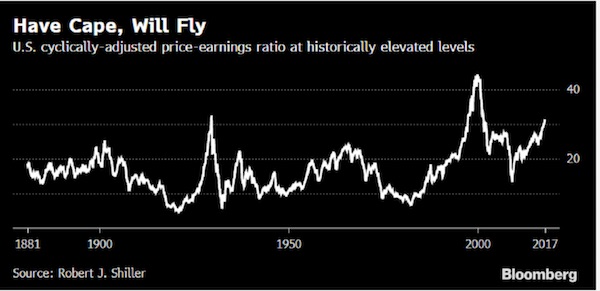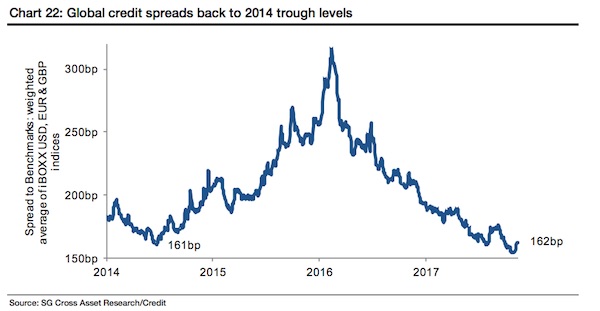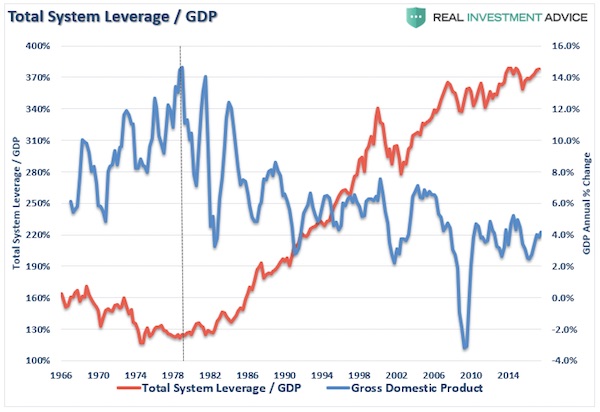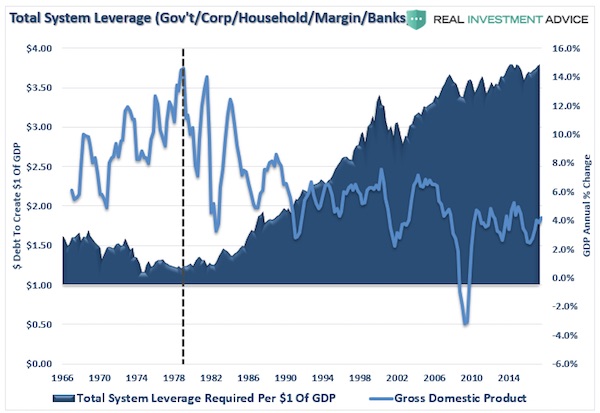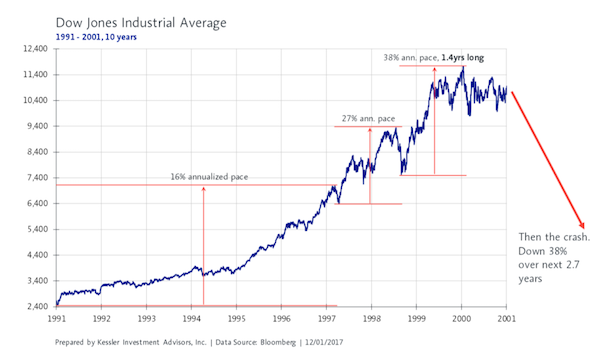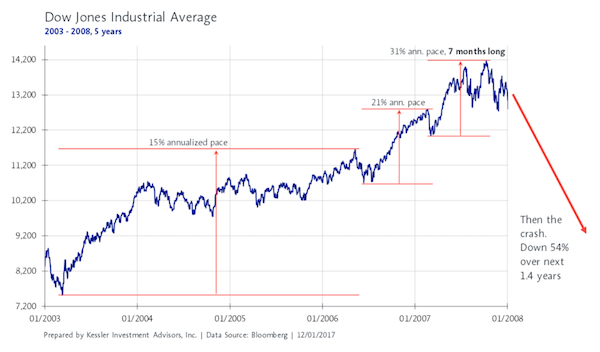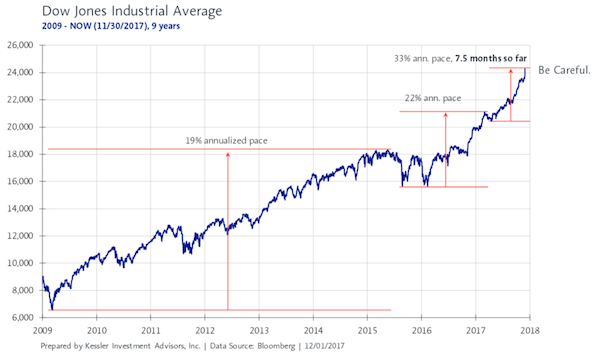
Pablo Picasso� Two naked figures �1908

There doesn’t seem to be any initiative to do something about this. Big mistake.
• 40% Of The American Middle Class Face Poverty In Retirement (CNBC)
Nearly half of middle-class Americans face a slide into poverty as they enter their retirement, a recent study by the Schwartz Center for Economic Policy Analysis at the New School has concluded. That risk has been driven by depressed earnings, depressed asset values and increased health-care costs — causing 74 percent of Americans planning to work past traditional retirement age. Additionally, both private and public pension plans have been allowed to become seriously underfunded. So what can be done? Fundamental changes in the structure of the U.S. economy, combined with increased health-care costs and lack of saving, have created a financial trap for millions of American workers heading into retirement.
Roughly 40 percent of Americans who are considered middle class (based on their income levels) will fall into poverty or near poverty by the time they reach age 65, according to the study. The study also concluded that if workers age 50 to 60 decide to retire at age 62, 8.5 million of them are projected to fall below twice the Federal Poverty Level, with retirement incomes below $23,340 for singles and $31,260 for couples. Further, 2.6 million of those 8.5 million downwardly mobile workers and their spouses will have incomes below the poverty level — $11,670 for an individual and $15,730 for a two-person household.

In total, “71 percent of Americans aged 17-24 do not meet the military’s sign-up requirements..”
• One-Third Of Young Americans Too Overweight To Join The Military (AFP)
Forget about the high-tech military challenges from China and Russia, the Pentagon is facing a fast-growing national security threat that could be even trickier to tackle: America’s obesity crisis. A study released this week has found that nearly one-third of young Americans are now too overweight to join up, a worrying statistic for military officials already facing recruitment challenges. “Obesity has long threatened our nation’s health. As the epidemic grows, obesity is posing a threat to our nation’s security as well,” the Council for a Strong America states in its new report. The Army last month announced it would miss its goal of attracting 76,500 new recruits in 2018. The shortfall is of about 6,500 soldiers — the first time since 2005 the service had missed its hiring targets.
A strong US economy and tight jobs market played a role, but the numbers highlight the dwindling pool of applicants the Pentagon has to draw from. According to the Defense Department, obesity is one of the top reasons why a stunning 71 percent of Americans aged 17-24 do not meet the military’s sign-up requirements. “Given the high percentage of American youth who are too overweight to serve, recruiting challenges will continue unless measures are taken to encourage a healthy lifestyle beginning at a young age,” states the study, entitled “Unhealthy and Unprepared.”

Double or nothing.
• We Are All In….Again! (Roberts)
Despite the recent angst in the market over increasing interest rates, there has been little evidence of concern by investors overall. A recent report showed that investors have the LEAST amount of cash in their investment accounts…EVER. “Individual investors drew down cash balances at brokerage accounts to record lows as the S&P 500 surged 7.2 percent in the three months ended Friday. Cash as a percentage of assets among Charles Schwab Corp. clients in August fell to 10.4 percent, matching the level in January that marked the lowest since at least 2004.” Of course, eight months ago the markets suffered a 10.4% decline just as investors scrambled to “get in.”
The monthly survey from the American Association of Individual Investors shows the same. Individuals are carrying some of the highest levels in history of equities, are reducing their exposure to bonds, and carrying very low levels of cash. As Dana Lyons recently noted: ” From the Federal Reserve’s Z.1 release, we find that U.S. Households had a reported 34.3% of their financial assets invested in the equity market as of the 2nd quarter. Outside of a slightly higher reading in the 4th quarter of 2017, that is the highest level of stock investment in the 70-plus year history of the series, other than the 1999-2000 bubble top.”
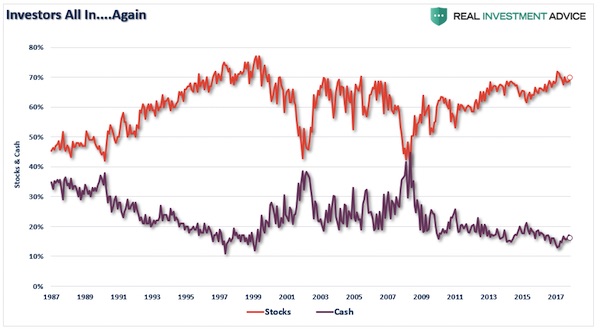

What did Erdogan get?
• American Pastor Freed In Turkey Will Visit White House Saturday (AP/R.)
The pastor who was at the center of a diplomatic spat between Turkey and the United States will land at a military base near Washington on Saturday and will likely visit the White House the same day, President Donald Trump said on Friday. “We’re very honored to have him back with us,” Trump told reporters, referring to the release of pastor Andrew Brunson by a Turkish court. “He suffered greatly but we’re very appreciative to a lot of people,” Trump added, saying no deal had been made with Turkey on lifting U.S. sanctions in exchange for Brunson’s release.
Earlier Friday, a Turkish court convicted Brunson of terror links but released him from house arrest and allowed him to leave the country, removing a major irritant in fraught ties between two NATO allies that still disagree on a host of other issues. The court near the western city of Izmir sentenced North Carolina native Brunson to just over three years in prison for allegedly helping terror groups, but let him go because the 50-year-old evangelical pastor had already spent nearly two years in detention. An earlier charge of espionage was dropped.

“Khashoggi was wearing an Apple watch when he entered the consulate..”
• Saudi Isolation Grows Over Khashoggi Disappearance (G.)
Saudi Arabia has found itself further isolated over the disappearance of Jamal Khashoggi after the business world turned its back on a high-profile investment conference in the kingdom and US officials claimed audio and video recordings had captured the moment the journalist was murdered in Istanbul. The Future Investment Initiative conference, to be held in Riyadh later this month, was rapidly turning into a fiasco on Friday after most media partners and several top business allies pulled out. More were expected to follow. All said they had been disturbed by the circumstances of Khashoggi’s disappearance from the Saudi consulate in Turkey and the lack of credible responses.
Saudi Arabia has been under pressure to explain what happened to Khashoggi after he entered the consulate building at 1.14pm on 2 October. Turkey has claimed the exiled journalist and critic of Crown Prince Mohammed bin Salman was murdered by a hit squad sent from Riyadh. Authorities in Istanbul have hinted they hold undisclosed evidence that proves what took place. On Friday, US officials revealed to Khashoggi’s employer, the Washington Post, that Turkish investigators had claimed audio and video tapes existed of conversations between the missing 59-year-old and his alleged killers. “You can hear his voice and the voices of men speaking Arabic,” an official said. “You can hear how he was interrogated, tortured and then murdered.”
The references to recordings could suggest that Turkish intelligence officers had bugged the consulate or some of the accused killers. Hatice Cengiz, Khashoggi’s Turkish fiancee, told the Associated Press on Friday that Khashoggi was wearing an Apple watch when he entered the consulate and investigators were examining his cellphones, which he had left with her. In written responses to questions by the AP, Cengiz said Turkish authorities had not told her about any recordings and that Khashoggi was officially “still missing”. Cengiz said Khashoggi was not nervous when he entered the Saudi consulate in Istanbul and did not suspect anything bad would happen to him. “He said ‘See you later my darling’ and went in,” Cengiz said, and they were his last words to her.

As long as the arms sales can go on…
• UK ‘Gears Up’ To Target Saudis With Sanctions After Journalist Vanishes (Ind.)
UK officials have begun drawing up a list of Saudi security and government officials who could potentially come under sanctions pending the outcome of investigations into the disappearance of dissident journalist Jamal Khashoggi, a source close to both Riyadh and London told The Independent. The list being drawn up by the Foreign and Commonwealth Office could be used in case the UK decides to invoke the “Magnitsky amendment,” passed this year, which allows Britain to impose sanctions on foreign officials accused of human rights violations, or to apply restrictions on Saudi trade and travel in coordination with the European Union.
Asked to confirm or deny the drawing up of the list, the Foreign Office said it “had nothing to add” to the Khashoggi matter other than comments the foreign secretary, Jeremy Hunt, made on Thursday. “Across the world, people who long thought themselves as Saudi’s friends are saying this is a very, very serious matter,” said Mr Hunt. “If these allegations are true there would be serious consequences.” The source, a former government advisor, told The Independent they were briefed by a UK intelligence official and others. “Initially this was a position-paper scenario,” the source said. “Now it is definitely being looked at as a real possibility.”

“..the sudden attention “seems very strange” considering the “bloody murder that the Saudis have gotten away with for decades.”
• ‘Pressure Will Be On Turkey’ If Saudis Found Guilty Of Journalist’s Murder (RT)
Former US diplomat Jim Jatras and investigative journalist Rick Sterling tell RT what could happen if allegations that the Gulf monarchy, headed by Saudi crown prince Mohammed bin Salman, is behind the plot prove to be true. If Saudi Arabia is found to be complicit in Khashoggi’s disappearance, Sterling believes “the pressure will be on [Turkish president] Erdogan and Turkey to escalate.” “Saudi Arabia effectively abducted Lebanese Prime Minister [Saad] Hariri and he appeared in Riyadh, resigned – supposedly – and then it turned out he was coerced in some form or manner,” Sterling added. “The Saudi government is extreme, it’s bizarre and we’ll have to see how the facts develop in this case but it points towards the instability of that government that beheads hundreds of citizens a year.”
However, he adds, the Saudi regime has been “an extremely close ally of the US and Israel. This would be a huge earthquake in international relations if the calls for a serious reduction in relations continues.” Despite the years of brutality against their own people, Khashoggi’s disappearance seems to have ushered the Saudi regime’s reckless violence into the global spotlight, Jatras told RT. “Saudi Arabia is usually immune from criticism from the American establishment, They can destroy Yemen, they can cut people’s heads off… and suddenly over one journalist everyone is outraged; We discover that Saudi Arabia is an oppressive regime that kills people,” Jatras said, adding that the sudden attention “seems very strange” considering the “bloody murder that the Saudis have gotten away with for decades.”

Can’t please everyone.
• Theresa May Faces Her Party As A Desperate Gambler In Hope Of A Break (G.)
Brexit is unusual as a game of poker, in that one side folded long ago but has still not revealed its losing hand. For months, the EU has insisted that Theresa May’s only options for a deal would lead to either a soft Brexit for the whole UK, or a sea border between Great Britain and Northern Ireland. For months, critics have challenged the government to spell out which of these two ostensibly intolerable concessions it intends to make. Now it seems we know. The prime minister will concede both. Capitulating to Brussels will be the easy part. After that, May will have to lie to the hard Brexiters, bully the Tory remainers, and call the bluff of the Democratic Unionist party. As the Brexit circus enters its final month, here is its tightrope.
First, Brussels. The EU’s offer springs from its immutable and non-negotiable red lines: to preserve the single market, the Good Friday agreement, and Ireland’s invisible border. Only two outcomes can satisfy all those requirements: the whole UK remains in the whole single market and customs union, or Northern Ireland stays in the customs union and single market in goods while Great Britain diverges. May has decided to mix and match those outcomes. It appears the whole UK will remain in the customs union, so there are no tariff divergences or checks either on the island of Ireland or within the United Kingdom. And Great Britain will leave the single market, thus necessitating “de-dramatised” regulatory checks on goods crossing the Irish Sea.
May’s surrender is not in doubt. Neither is the resistance to this deal from all opposition parties. Consequently, the prime minister’s only task is to fool or blackmail her MPs into supporting it. Her most pressing duty will be to hoodwink the parliamentary hardliners in thrall to Boris Johnson and Jacob Rees-Mogg. May will attempt this ambitious deception principally by insisting that the permanent customs union will in fact be temporary. It will not.

“..many people were shocked and questioned why they had not been made aware of the implications sooner.”
• UK Consumers Face ‘Catastrophic’ Consequences From No-Deal Brexit (Ind.)
Millions of consumers could face “immediate” and “catastrophic” consequences in the event of a no-deal Brexit, the watchdog Which? has said. The consumer group said the government’s preparations for a no-deal exit suggested a reduction in consumer rights and choice as well as price hikes that would have a “direct and hard” impact in areas ranging from travel to food and energy. The watchdog, which based its conclusions on its assessment of the government’s technical notices in preparation for the event of a no-deal Brexit, online forums and surveys, said two in five people did not understand the potential implications of a no-deal scenario.
In its report – Brexit no deal: a consumer catastrophe? – Which? says: “Our latest consumer research shows that most people are unprepared for what ‘no deal’ would mean in practice – and many do not understand how it would have multiple impacts across so many aspects of their daily lives. “When the everyday repercussions and government’s plans on issues such as food and medical supplies were explained to people in our research, many people were shocked and questioned why they had not been made aware of the implications sooner.”

Good to see support for the Greens.
• Merkel Faces Poll Disaster As Coalition Support Collapses (Ind.)
Angela Merkel’s conservative allies in the German state of Bavaria are facing losses in regional elections as liberal-minded voters defect to the Greens. The Christian Social Union, which has enjoyed six decades of dominance in the state, is predicted to suffer heavy losses in the vote on 14 October. The party is part of Germany’s grand coalition with its sister party, Ms Merkel’s Christian Democrats (CD) and the centre-left Social Democrats (SDP). A Forschungsgruppe Wahlen poll predicted the CSU could lose up to 14 percentage points in the upcoming elections as voters flock to the pro-immigration Greens.
Support for the CSU stood at 34 per cent, compared to the 48 per cent it won in the last regional election in 2013. The Greens appear poised to overtake the Social Democrats (SPD) to become Bavaria’s second-largest party, with up to 19 per cent of the vote, an increase of 10 percentage points since the last elections. If the polls are correct, the Greens could become a potential coalition partner for the CSU in Bavaria. The polls also showed the anti-immigration Alternative for Germany (AfD) party on 11 per cent, which would be enough to enter the Bavarian state parliament for the first time.

Europe’s IMF. Too much power.
• The New Face of the Eurozone Bailout Fund (Spiegel)
The first step is that of transforming the ESM into a kind of European replacement for the IMF. The IMF played a central role in Greece during the crisis, but there were often clashes over the best way to help the country. In the future, the IMF does not intend to participate in state bankruptcies in Europe. For the ESM to function as a European IMF, the organization is to be granted oversight rights to look over the individual finances of eurozone member states. Should a new crisis crop up, the ESM would be armed with additional control and enforcement rights.
[..] One of the ESM’s new tasks is ringing the alarm bells early when there are signs of an approaching crisis. The ESM possess a deep knowledge of the financial situations of former crisis countries, in part because analysts tag along when donor state representatives visit those countries’ capitals. The organization also knows a lot about larger member states like Germany and France, Regling says. “But if, purely hypothetically, something were to happen in, say, Austria or Malta, we would currently be at a loss.” To fulfill its role as an early-warning system, the ESM must recruit experts on all member countries. A larger staff is also needed for the ESM’s second area of operation. In the future, the plan is for the ESM to provide financial backing for the European mechanism for the resolution of failing credit institutions. For this, Regling needs banking experts.
The ESM will also receive a set of new financial instruments geared toward helping ailing countries quickly. A precautionary line of credit is in discussion that could be extended to countries not yet in acute need but which require help to calm wary investors. In a paper for the Eurogroup, as the board of eurozone finance ministers is known, the ESM also proposes another instrument. It would provide short-term liquidity assistance to countries that have temporarily run out of money because they have unfairly landed in speculators’ crosshairs. “These funds would be paid out without a big fuss, and the country wouldn’t have to subject itself to a complete adjustment program,” the paper reads.
